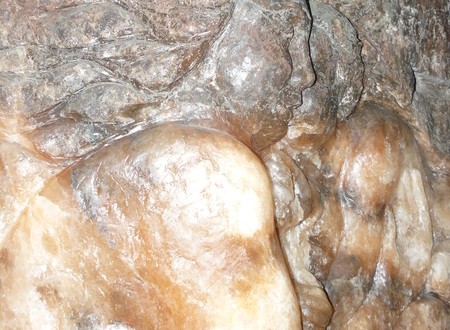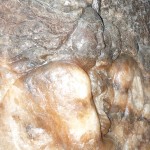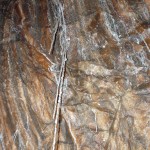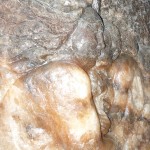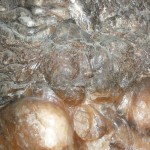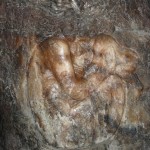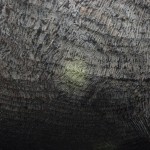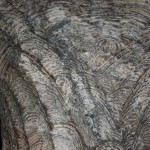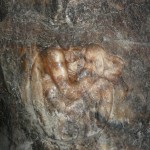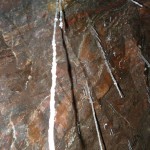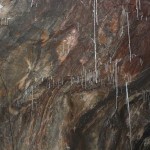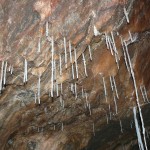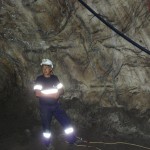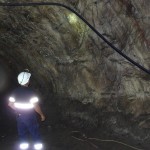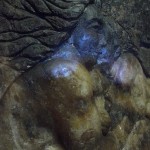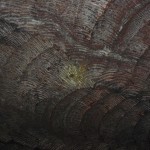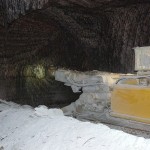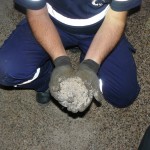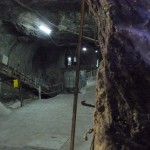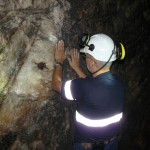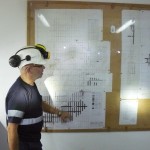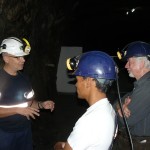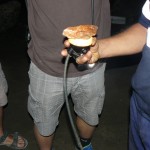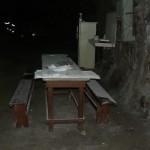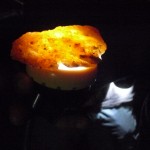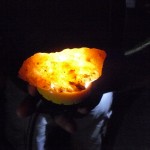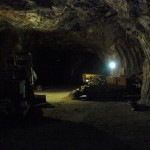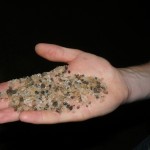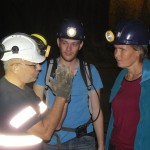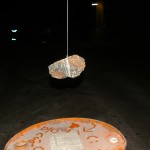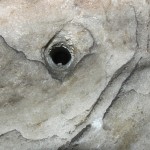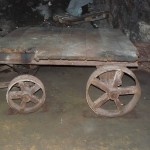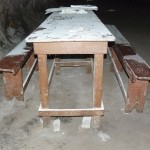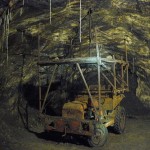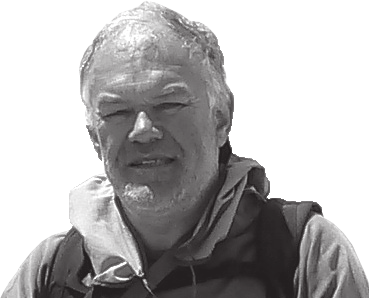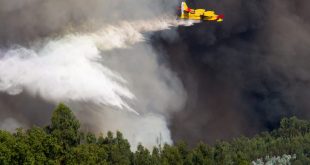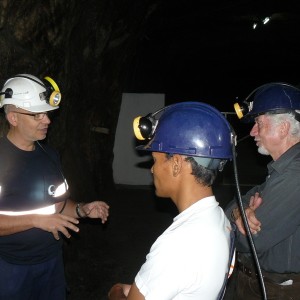
Loulé. There are six of us inflicting this on ourselves and squeezing into the lift cage. A bell rings and slowly, at one metre per second, we float down into the depths of the earth. We’re all wearing blue plastic helmets. They’re equipped with torches that are fastened to a cable with the belt around your waist. During the journey underground, I think about what could have motivated people more than 50 years ago, to drill a 260-metre-deep hole in the earth? Because what we are doing is nothing other than following a widened, enlarged borehole into the deep. There’s salt down there. But isn’t there enough salt to be found in the sea? What were they really looking for when they drilled a hole into the earth under Loulé and then cut kilometre long corridors, tunnels and vaults into the rock using explosives, and later industrial drilling; and then, in the darkness, searched for minerals in the silence of our earth in order to drag them up to the daylight? Next we go walking for an hour, underground. How relaxing!
In the long history of mining, people have been plundering the earth for gold, silver, copper, coal, iron ore and steel, tin and zinc, lead, mercury, uranium… and salt too, and thereby turning it into a different, poorer planet. Our civilisations founded their wealth on the extraction, transformation and trading of mineral resources. “The Gateway to Hell or Heaven” lasts four minutes and then the cage arrives in the Campina de Cima mine down below. “The Mello family, who own this mine,” says Alexandre Andrade, the mine’s technical director, “want to sell it because it’s losing 150,000 euros per year.” In the past, when there were several hundred people working here, they worked in three shifts, he said, adding that there were now only 16 mineiros underground. Managing, restoring, and occasionally bringing up a few tonnes of salt. Peak salt was already reached a generation ago. At some stage, these resources too will be exhausted. Today, the owners are thinking carefully about the uses to which such a mine could still be put. An underground wellness hotel which could boost tourism in the Algarve has been discussed, planned and then rejected again. A Faro Cine Club film series used to show horror films in the vaults. But that too is in the past. And whether one composer’s idea of performing her opera of the seven deadly sins could be a success – an idea that moves me deeply – is in the lap of the gods of Loulé.
Can we humans bring about a paradigm shift? Sooner or later, the exhaustion of resources will become a serious problem for our civilisation. The mineral phosphate, of which there is enough for another 40 years, is irreplaceable in industrial agriculture. Non-renewable natural resources go hand in hand with the limits to growth. But we multiply like lemmings. So what will we humans face in the near future, when the age of burning carbon comes to an end? As the glow of the fossil fire gradually dies, all the other mineral resources that our blue planet has amassed in the course of its history are disappearing. Can the greed for raw materials be transformed into a phase of frugality? Then we would strike it lucky as contemporary witnesses in the Loulé salt mine on our own doorstep. We could go on an illustrative journey back in time into the history of the 20th century – paying for admission of course.
 Eco123 Revista da Economia e Ecologia
Eco123 Revista da Economia e Ecologia

